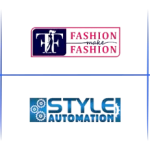IELTS coaching in Chandigarh
How to Approach Different Question Types in the IELTS Reading Test
The IELTS Reading Test presents a variety of challenges, but understanding how to approach different question types can significantly enhance your performance. Whether you’re aiming to boost your band score or simply want to refine your reading skills, this guide will provide you with essential strategies for each question type. For those seeking to excel, enrolling in IELTS coaching in Chandigarh can provide personalized guidance and additional practice to master these strategies effectively.
What Are the Common Question Types in the IELTS Reading Test?
The IELTS Reading Test is designed to assess your reading comprehension through a range of question types. These include Multiple Choice Questions (MCQs), True/False/Not Given, Matching Headings, Sentence Completion, Summary Completion, Matching Information, Short Answer Questions, and Diagram Label Completion. Each question type requires a specific approach, and understanding these nuances is crucial for success.
How Do I Approach Multiple Choice Questions?
Multiple Choice Questions (MCQs) can be particularly challenging due to the similarity of the options and the complexity of the passages. The best strategy is to read the question first, which helps you focus on what you need to find in the passage. Skim the relevant section of the passage to locate the information quickly, and then eliminate the options that are clearly incorrect. This process of elimination narrows down your choices, making it easier to select the best answer that accurately reflects the information in the passage.
What’s the Best Strategy for True/False/Not Given Questions?
True/False/Not Given questions require careful analysis to determine if a statement is true, false, or not mentioned in the passage. Begin by thoroughly understanding the statement in the question. Then, locate the relevant section in the passage and analyze it carefully. If the statement is directly supported by the text, it’s true; if it contradicts the text, it’s false. If the information is not mentioned, the correct answer is Not Given. Avoid making assumptions, and base your answers solely on the information provided in the passage.
How Should I Handle Matching Headings Questions?
Matching Headings questions ask you to match a list of headings to paragraphs or sections of the passage. To tackle these questions effectively, skim the passage first to get a general sense of what each paragraph is about. Identify the key ideas or themes in each paragraph and match them with the appropriate heading. Be cautious of distractor headings that may seem to fit but don’t capture the main idea of the paragraph entirely. Focus on the overall theme rather than getting caught up in specific details.
What Tactics Work Best for Sentence Completion Questions?
Sentence Completion questions require you to fill in the blanks with words from the passage. Start by reading the incomplete sentence to understand its context. Then, locate the relevant section of the passage that provides the information needed to complete the sentence. Pay close attention to grammar to ensure that the word or phrase you choose fits smoothly into the sentence. Additionally, be mindful of any word limits specified in the instructions, and ensure your answer adheres to these guidelines.
How Can I Tackle Summary Completion Questions?
Summary Completion questions involve filling in blanks within a summary of the passage. The first step is to understand the overall context of the summary. Then, find the corresponding information in the passage. Keep in mind that the summary may use different words from those in the passage, so look for synonyms or paraphrased ideas. Ensure your answers are concise and stick to the word limit, if provided. This type of question tests your ability to understand and condense information, so clarity and precision are key.
What Is the Ideal Approach for Matching Information Questions?
Matching Information questions require you to match specific information with the correct paragraph or section of the passage. Begin by skimming the passage to get an overview of where different information is located. Read each piece of information carefully to understand what detail you need to find. Once you locate the information in the passage, match it to the correct paragraph. If you’re unsure, use a process of elimination to narrow down your options, but always aim to match the information accurately.
How Do I Deal with Short Answer Questions?
Short Answer questions ask you to respond to a question using words from the passage. The first step is to understand the question fully, ensuring you know exactly what it is asking. Then, locate the relevant information in the passage. Your answer should be brief and to the point, staying within any word limits provided. Correct spelling is crucial, as mistakes can lead to lost marks. Be precise and make sure your answer directly addresses the question.
What’s the Best Way to Prepare for Diagram Label Completion?
Diagram Label Completion questions involve labeling parts of a diagram based on information from the passage. Start by carefully examining the diagram to understand what it represents. Then, locate the relevant section of the passage that describes the diagram or its components. Match the labels with the correct parts of the diagram, ensuring that your answers are accurate and clearly represent the information in the passage. This question type tests your ability to interpret visual information, so attention to detail is essential.
Conclusion
Understanding and practicing these strategies will help you approach different question types in the IELTS Reading Test with confidence. Each question type has its own set of challenges, but with preparation and familiarity, you can significantly improve your reading skills and your overall performance on the test. If you’re looking for expert guidance, enrolling in an IELTS coaching institute in Chandigarh can provide you with the tools and techniques to read smartly, find and interpret information effectively, and succeed in the IELTS Reading Test.


